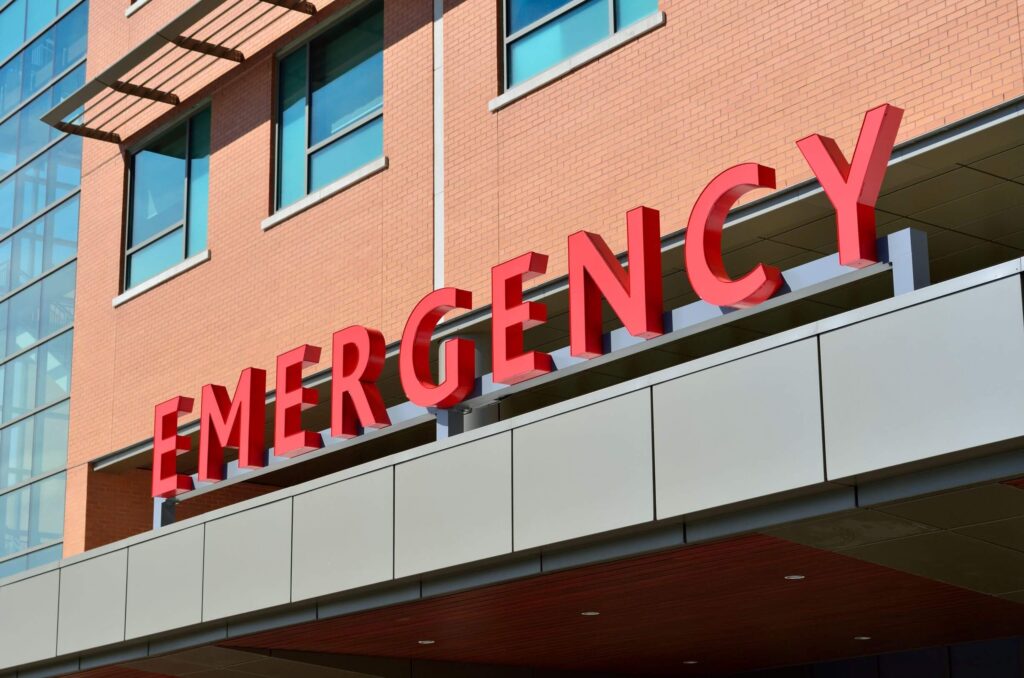First responders are called that because they are typically the first people on the scene or treating victims of a car accident, house fire, violent assault, or other traumatic events. Firefighters, police, and medical personnel are all typically among the first to respond when something devastating or tragic happens. The traumatic event not only affects the victims but also those responding to it. Trauma in first responders can lead to issues such as post-traumatic stress disorder (PTSD) as well as substance use disorders.
June is PTSD Awareness Month
The month of June has been designated as a time to focus on PTSD, its causes and its effects. In the midst of the COVID-19 pandemic, many first responders have experienced traumatic situations that could lead to symptoms of PTSD. Depression and PTSD affect an estimated 30% of first responders in the US – compared to 20% of the general population. And while approximately 3.7% of Americans have contemplated suicide, that rate jumps to 37% for fire and emergency medical services (EMS) professionals. Further, 0.5% of Americans attempt suicide versus 6.6% of fire and EMS professionals.
PTSD Symptoms
First responders who are exposed to the stress of traumatic events over time can suffer from its effects on their mental and physical health. When that stress begins to take its toll on the first responder, PTSD can be the result. Symptoms of PTSD can include:
- Flashbacks, nightmares, and recurring thoughts
- Emotional numbness
- Extreme worry, guilt, anger, or hopelessness
- Avoidance of people, places, or things that are reminders of the trauma
- A loss of interest in things that once gave pleasure
- Feeling anxious, on edge, or jumpy, and startling easily
- Sleep issues
- Problems with alcohol, drugs, or food
PTSD and Substance Use
Many people with PTSD turn to substances such as alcohol or drugs to alleviate their symptoms, in an attempt to self-medicate. They may experience insomnia and believe that they can only sleep with the aid of medications. Substance use, in reality, only makes the symptoms of PTSD worse. In fact, the combination of PTSD and substance use might be one of the leading factors of the high rate of suicide among first responders, according to some researchers.
On the Front Lines
One research study found that both natural and technological disasters were found to be associated with an increased risk to the behavioral health of first responders, as were factors such as resiliency, trust in self and team, duration on the disaster scene, individual coping style, and post-disaster mental health support.
First responders are always at the forefront of each incident or disaster, and they ensure the safety and well-being of the population. They are, however, at great danger of being exposed to potentially traumatic situations that pose risk of harm to them or the people under their care. This creates a great risk for the behavioral health of first responders, putting them at risk for stress, PTSD, depression, substance use, and suicide ideation and attempts.
In addition, the study found that when the first responder’s personal life was affected by a disaster, that was associated with higher levels of mental health issues and post-disaster life events (such as a divorce or the breakup of a relationship) associated with distress, depression, and PTSD.
Treatment for First Responders with PTSD
There tends to be a stigma among first responders regarding a diagnosis of a mental health condition and pursuing treatment for it. They may experience fear of admitting that they’re struggling, since that might be seen as proof that they’re not up to the stress and challenges of their job.
The stereotypes associated with mental health issues can also keep many first responders from seeking treatment, as that might make them seem defective or weak among their peers. When the stigma turns internal, the first responder buys into the negative things they’ve heard and then attempts to hide the condition rather than seek treatment for it.
Treatment for the PTSD as well as for any accompanying substance use disorders is critical, though, for the continued well-being of the first responder. Trauma therapy, such as cognitive processing therapy or stress reduction strategies, can be very effective in helping first responders overcome their PTSD and work toward a healing recovery.
Trauma Therapy for First Responders at Providence Treatment
At Providence Treatment, we want to help you overcome the stigma of PTSD treatment so you can get the help you need. Our professionals put into place best practice strategies to help you with PTSD and your accompanying substance use issues. During COVID-19, we offer telehealth to support you while keeping everyone safe and healthy because it’s important for you to be able to prioritize your mental health during these challenging times. You can overcome addiction with outpatient treatments at Providence Treatment. If you need help, contact us at 484.469.9592.









